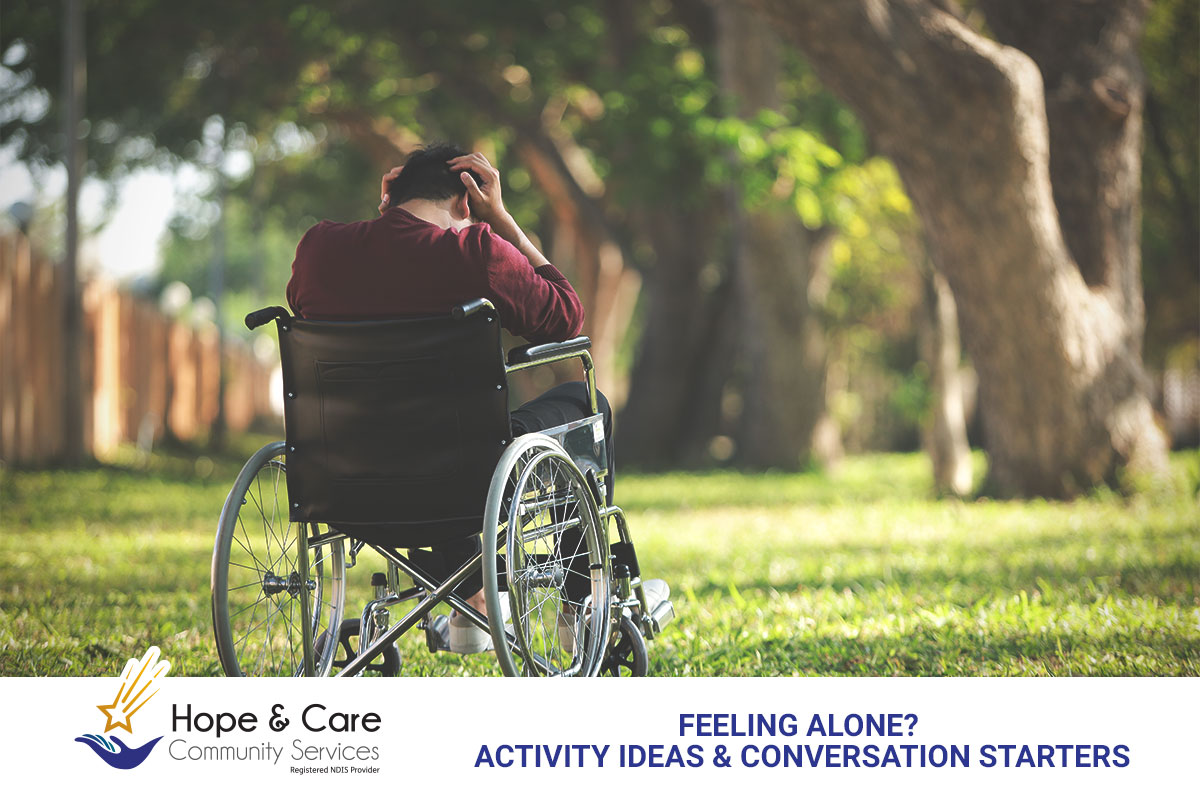
Loneliness is something many Australians experience, yet it often goes unspoken. According to the Australian Bureau of Statistics, one in five Australians reported feeling lonely in 2022. Even more concerning, young people aged 15–24 are experiencing the highest levels of loneliness in Australia. That’s why overcoming loneliness has become a growing focus, especially among younger communities seeking connection and support
Loneliness is not just an uncomfortable feeling it can affect both mental and physical health. Studies link long-term loneliness to higher risks of anxiety, depression and even chronic illness. Some research shows the health impact is similar to smoking 15 cigarettes a day.
However, the positive news is that there are practical steps you can take for overcoming loneliness. By joining activities, connecting with others and starting simple conversations, you can build a stronger sense of belonging.
Activity Ideas for Overcoming Loneliness
You do not need a large group of friends to feel connected. Small and intentional actions can create opportunities to meet people and strengthen your wellbeing. Here are 12 activity ideas to try:
Pursue Your Interests in Groups
Join a local book club, art class, gardening group or choir. Shared hobbies create natural opportunities for connection.
Volunteer for a Cause You Care About
Volunteering builds purpose and brings you together with people who share your values. Look for opportunities at charities, shelters or community organisations.
Get Active with Others
Exercise improves mood and offers social opportunities. Join a walking group, a fitness class or try a community event like Park run.
Become a Regular at Local Spots
Visit the same café, library or weekend market regularly. Small conversations with staff and locals can grow into friendly connections.
Attend Community Events
Check your community calendar for festivals, workshops or public talks. Shared experiences are an easy way to feel part of a group.
Spend Time in Public Spaces
Spend time in parks, co-working hubs or shopping centres. Simply being around others can reduce feelings of isolation.
Connect with Animals
Adopt a pet if you can or volunteer at an animal shelter. Pets provide companionship and can help you meet fellow animal lovers.
Join Online Communities
Explore safe online groups that match your interests. Many online communities organise local meet ups, creating a pathway to real-life connection.
Explore Creative Pursuits
Express yourself through art, writing or music. Creative workshops give you a space to connect with others while sharing your passion.
Reconnect with Nature
Join a bushwalking or gardening club or simply spend time outdoors. Nature supports wellbeing while offering opportunities for social interaction.
Practice Self-Kindness
Take time for yourself through journaling, reflection or listening to music. Treating yourself with compassion builds emotional resilience.
Use Social Media Mindfully
Use social media to engage actively, not passively. Reconnect with old friends, join positive groups and limit accounts that trigger negative feelings.
Conversation Starters for Overcoming Loneliness
Starting conversations can feel challenging, especially if you already feel isolated. However, most people welcome friendly interactions. By keeping things light and genuine, you can take the pressure off.
Tips for Conversation:
- Comment on something you share with the other person, such as the event you are both attending.
- Ask open-ended questions that invite longer answers.
- Listen actively and show interest in their response.
- Accept that short, friendly exchanges also count as meaningful interactions.
3 Simple Conversation Starters
- Comment on shared context
“This coffee is great, is not it?” or “How did you hear about this event?” - Ask about interests
“What do you enjoy doing in your free time?” or “Have you seen any good movies lately?” - Ask about something positive
“What’s something that made you smile today?” or “What’s been the highlight of your week?”
These questions create natural, light-hearted ways to connect with others.
Why Small Steps Matter in Overcoming Loneliness
Each small step toward connection matters. For example, joining a local class can lead to friendships, while chatting with your neighbour can make you feel more included.
For NDIS participants, activities like volunteering, community programs or joining interest groups can also create opportunities to build confidence and independence. Over time, these small steps help reduce loneliness and improve overall wellbeing.
FAQs About Overcoming Loneliness
Start small. Join local groups, volunteer or have short conversations with people in your community. Consistency is key.
Yes. Many NDIS supports include community participation, social skill-building and activities that reduce isolation.
Chronic loneliness increases risks of anxiety, depression and physical health issues. It impacts overall quality of life.
Begin with something simple, like commenting on your surroundings or asking about a person’s interests. Most people appreciate genuine friendliness.
It can, if used mindfully. Active engagement, such as reconnecting with friends or joining positive groups, is better than passive scrolling.
Conclusion
Loneliness can feel heavy, but it does not have to last forever. By taking intentional steps such as joining activities, connecting with others and starting conversations you can begin overcoming loneliness and building meaningful connections. Remember: every small interaction counts. Over time, these steps can improve your wellbeing, strengthen your sense of belonging and make life feel more connected.
At Hope & Care Community Services (HCCS), we believe everyone deserves meaningful connection and a sense of belonging. As a registered NDIS provider in Brisbane, we support participants to engage in their communities, build social skills and access activities that reduce isolation. Through personalised care and inclusive programs, we help individuals take confident steps toward overcoming loneliness and living more connected, fulfilling lives
Want to learn more? Read other articles :
- Positive Behaviour Support under the NDIS: A Guide
- Activities to Improve Social Skills in NDIS Participants
- Foundational Supports: Building Blocks of NDIS Success
HCCS is a registered NDIS provider. Learn more about our services.
♥ We are available in Brisbane! – Our team is just a call away!
